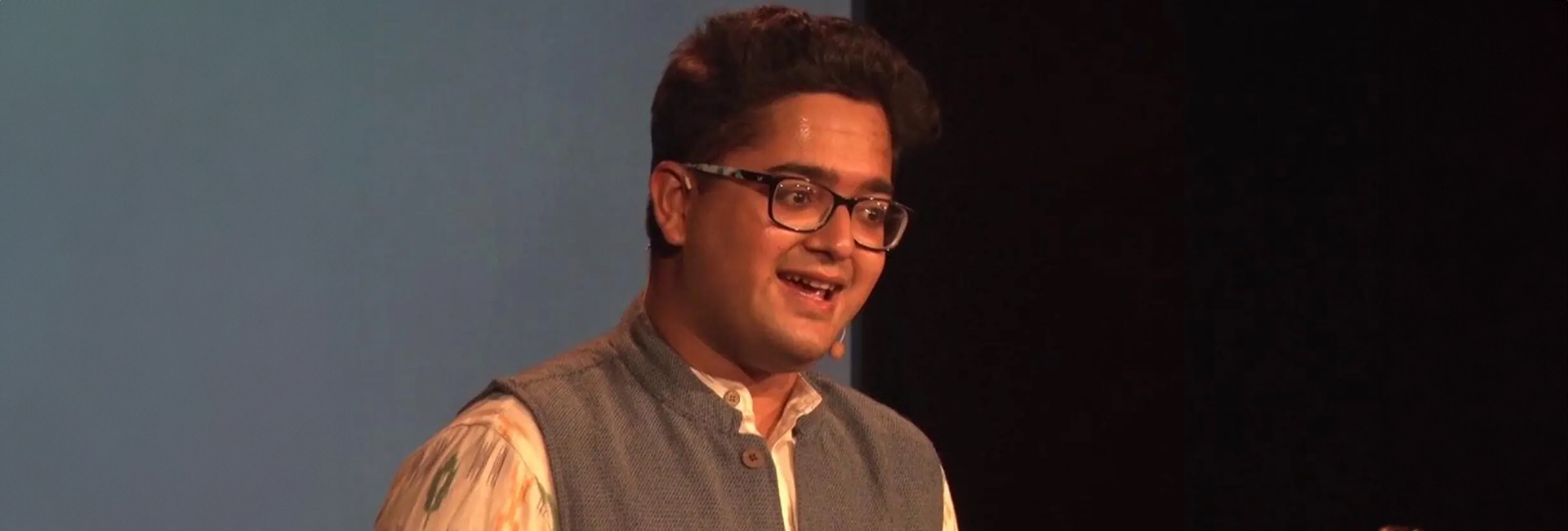(November 11, 2024) The rise of artificial intelligence has transformed almost every aspect of modern life – redefining industries, reshaping economies, and raising questions about the future of work. From self-driving cars navigating busy streets to predictive healthcare, AI systems continue to alter how we live and interact with technology. But while tech giants benefit immensely, marginalised communities often get left behind in this wave of innovation. This is where Manu Chopra, the founder of Karya, is bridging the gap and changing the narrative. For him, AI isn’t just about algorithms and data. It’s a tool to uplift, to bring dignity and opportunity to India’s often overlooked rural citizens. Till now, this Stanford graduate has impacted over 35,000 people across 24 states in rural India through Karya’s digital work.
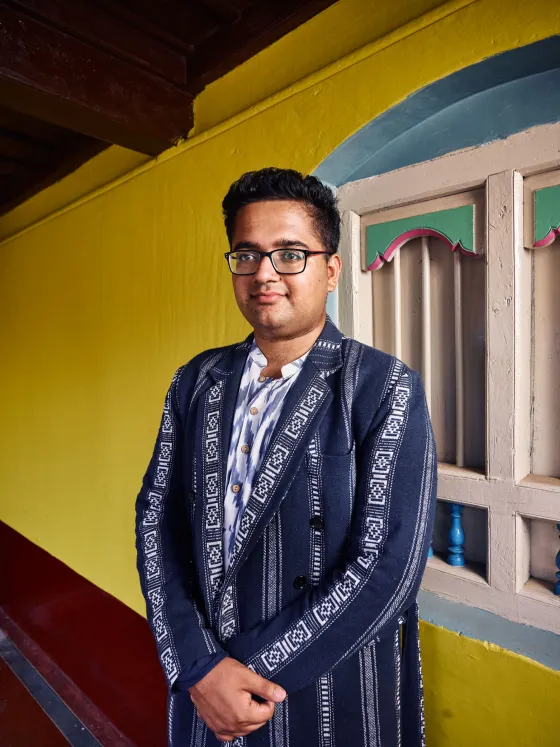
Manu Chopra
“Our goal is to use technology as a means to provide opportunities to disadvantaged communities. We identify and train workers who need work the most and pay them 20 times the minimum wage, ensuring that our data solutions contribute positively to both technology and society,” the 28-year-old wrote on his website.
The idea for Karya was born out of a realisation that large technology companies spend large sums collecting data to train AI systems, but these opportunities rarely reach the communities most in need. Karya addresses this issue by connecting rural communities to tech industry opportunities. Explaining how it works, Manu said, “Microsoft wants to make a language model in Marathi, one of the many regional languages of India. They reach out to Karya to collect thousands of hours of speech data in Marathi. Karya takes Microsoft’s big digital task and breaks it into micro tasks and we distribute these micro-tasks to our workers in rural India via their smartphone.” Apart from the employment, the biggest differentiator for these rural Indians is the pay. “We pay our workers 20 times the Indian minimum wage.”
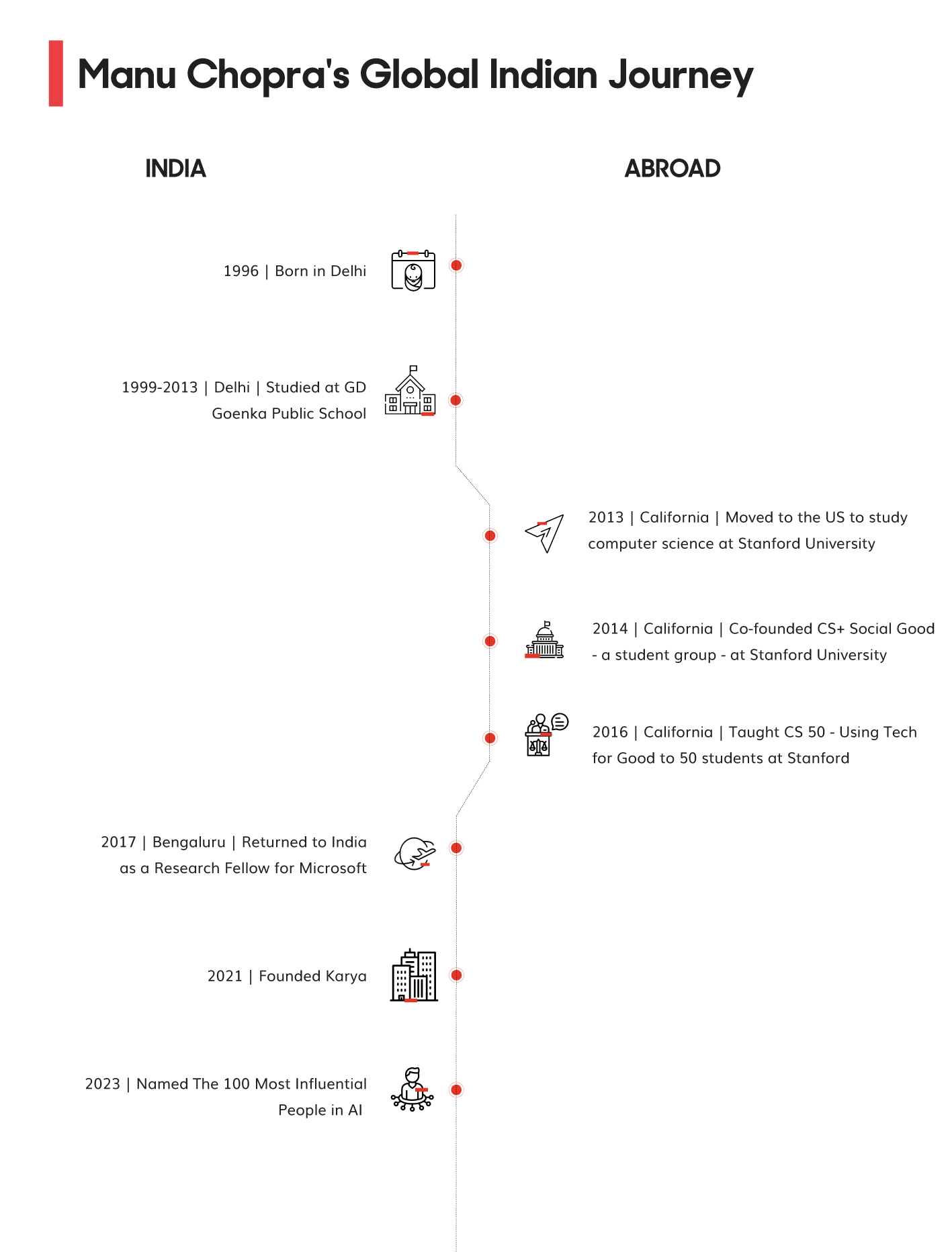
From Shakur Basti to Stanford University
Manu grew up in one of Delhi’s poorest neighbourhoods, Shakur Basti. It was in the dusty alleys of the basti that he found himself at a crossroads many times. Though poverty was a constant challenge, he channelled his interest in technology and education as a means of breaking the cycle. Growing up, he spent most of his afternoons coding in the community computer lab and dancing to Bollywood songs. “Through a series of scholarships, I became the first person from my community to go to a college in the US. In one generation, I went from Shakur Basti to Stanford,” the Global Indian said.
His admission to Stanford University was a seismic shift not just for him, but for his entire community. Stanford marked a new chapter for him, where he deepened his knowledge of computer science and explored how technology could create social impact. At Stanford, he co-founded CS+ Social Good, a student group focused on using technology to address pressing social issues. The goal was to empower students to use technology for social good by inspiring action, fostering collaboration, and creating pathways for change. This initiative began a lifelong commitment to merging tech innovation with social impact.
Having gained knowledge and skill sets in the US, he wanted to make an impact back home. Despite work opportunities at big companies, Manu Chopra decided to pack his bags and return to India in 2017 to work as a research fellow at Microsoft to explore ways to tackle extreme poverty by giving the poor access to digital work. This led him to travel across the country where he sought ways to leverage technology to alleviate poverty, gaining new insights into India’s evolving landscape. “I expected it to be harrowing. Mainstream media (within India and especially, abroad) paints such a bleak picture of India as if nothing good has ever happened or will ever happen in India. I expected to feel jaded at the lack of progress, and to be disappointed at the lack of good work happening on the ground. Obviously, the opposite happened. Every single village I visited blew me away. The more I travelled within India, the more optimistic I became,” he wrote on his website.
Empowering Rural India through AI
One experience in particular stayed with him — a field visit to a data company, where he saw over 30 men earning as little as $0.40 an hour. “I thought, this cannot be the only way this work can happen,” Chopra said. Driven by a desire to create more equitable opportunities, he founded Karya in 2021 alongside Vivek Sheshadri, a former Microsoft Research colleague. Their mission: to use AI and data collection to benefit the very people traditionally left behind by the tech revolution.
Karya’s main focus is on language. By highlighting India’s linguistic diversity, Karya meets the data needs of large tech companies while also helping rural workers earn money. “What if we could bypass skilling?” Chopra asked. “Can we give people a livelihood and money for skills they already have? What is the skill that rural India already has? Their language.” This philosophy has driven Karya to gather information in regional languages—spoken, written, and visual—so that AI systems become more accurate and culturally inclusive.
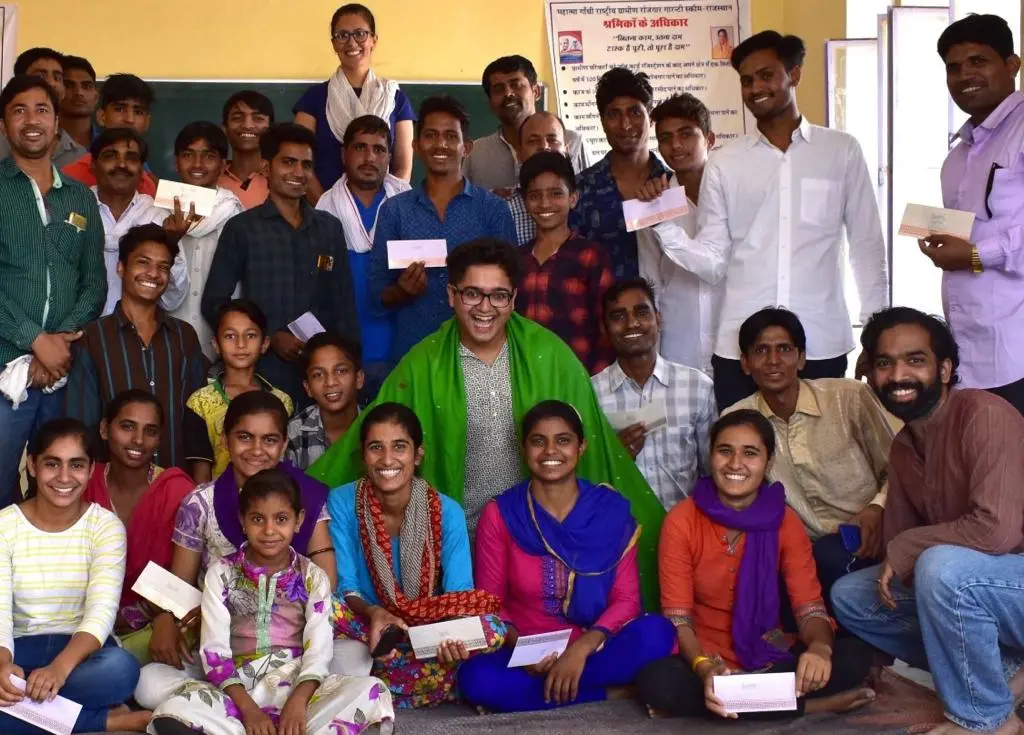
AI for Social Good
They pay workers $5 per hour, 20 times the minimum wage, and also help them earn royalties whenever their data is sold, creating a source of passive income. Karya currently focuses on collecting data in Indian languages that are underrepresented in AI. This data will be used to develop AI systems that are accurate and fair for all. Their work includes collecting written, spoken, and visual data in regional languages across India.
In just two years, Karya has changed lives. Over 35,000 rural Indians have earned a collective ₹65 million, finding economic security and, perhaps more importantly, a renewed sense of self-worth. “I genuinely feel this is the quickest way to move millions of people out of poverty if done right,” Chopra told TIME.
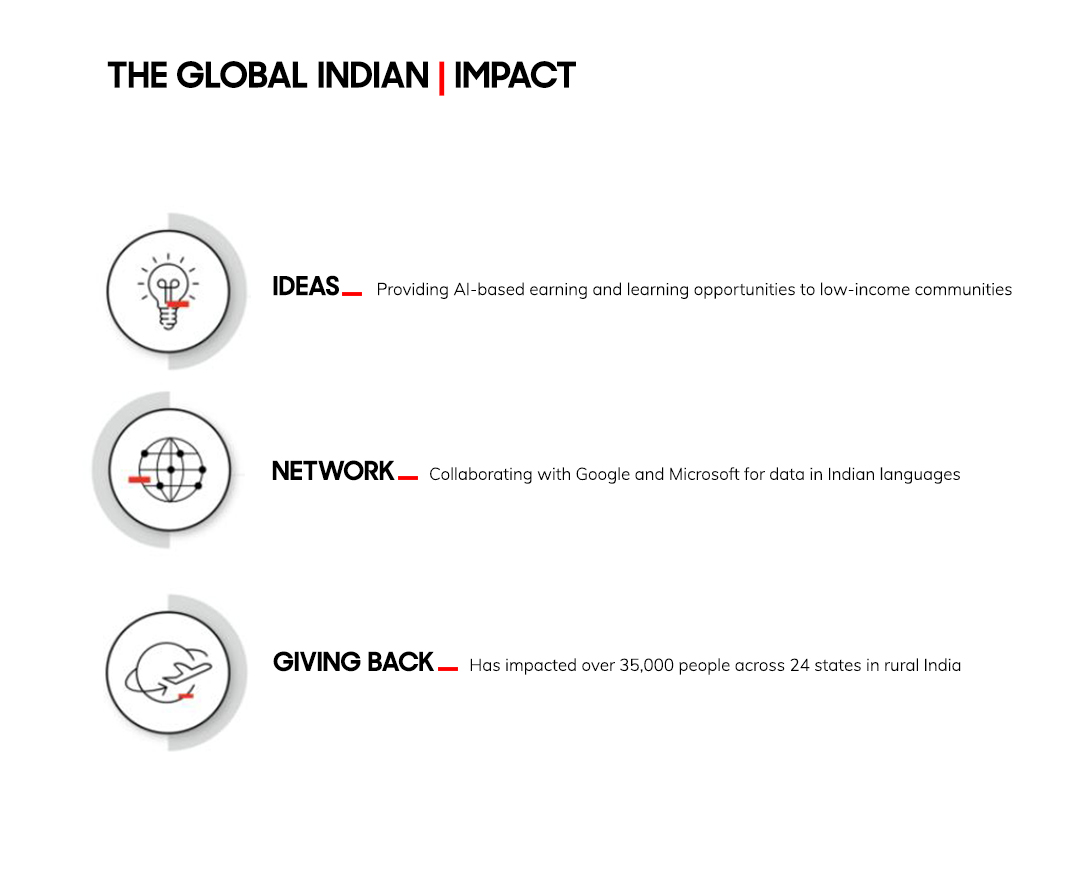
“Wealth is power. And we want to redistribute wealth to the communities who have been left behind.”– Manu Chopra
AI’s recent boom, especially in natural language processing, has placed projects like Karya at the center of global attention. Large tech players, including Microsoft and Google, have turned to Karya for speech data across 85 Indian districts, while the Bill & Melinda Gates Foundation collaborates with them to reduce gender-related biases in AI datasets. As biases in AI systems continue to garner scrutiny, his work represents a conscientious approach to building ethical, inclusive datasets. In 2023, Manu Chopra was featured in the list of the TIME100 Most Influential People in AI.
In a time when AI seems far from rural realities, Manu Chopra’s Karya bridges the gap by connecting marginalized communities to the digital economy, bringing dignity, and creating new opportunities. His journey from Shakur Basti to Stanford and back to India shows the power of innovation driven by empathy and purpose. It reminds us that technology’s true impact isn’t just in what it can do, but in who it can help.
- Follow Manu Chopra on LinkedIn
Read a similar story of:
6 Indian innovators, redefining the future of artificial intelligence.
Dhruva Jaishankar and Vishwa Shastra, rooted in legacy, driven by vision.

